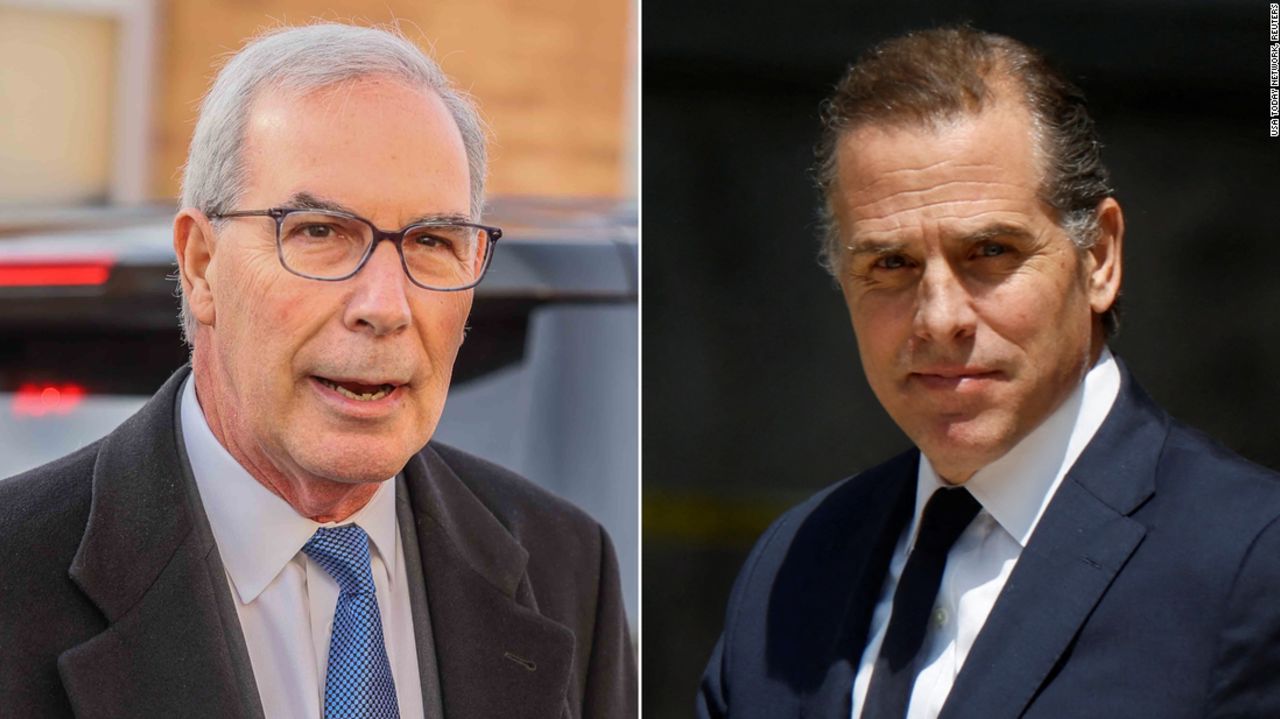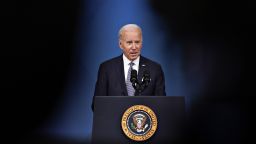Attorney General Merrick Garland did not provide a robust explanation on Friday for why he needed to give US attorney David Weiss special counsel status for the Hunter Biden probe, or why it was necessary five years after the investigation began.
In a televised statement, Garland only said that Weiss informed him on Tuesday that “his investigation has reached a stage at which he should continue his work as a special counsel.” Garland said he reviewed Weiss’ request, “as well as the extraordinary circumstances relating to this matter” and “concluded it is in the public interest” to make him a special counsel.
But the attorney general did not say what those “extraordinary circumstances” were. And Weiss didn’t make any statements on Friday.
The simplest explanation is that the plea talks between Weiss and Hunter Biden over tax and gun charges have collapsed, and the case now appears to be headed to trial. Indeed, it is “extraordinary” for the Justice Department, which is part of the executive branch, to go to trial against the son of a siting president. Instead of a speedy resolution with a plea, a trial guarantees there will be months or even years of future litigation.
But no one at the Justice Department has publicly offered this explanation. Friday, Garland never mentioned this major change in the trajectory of the case – from a misdemeanor plea deal to an unprecedented trial with potentially several felony charges.
It’s not clear what else may have changed to trigger the special counsel appointment.
IRS whistleblowers who worked on the case and congressional Republicans have claimed that Weiss needed special counsel powers because, as the US attorney in Delaware, he couldn’t pursue charges in other jurisdictions. The whistleblowers testified that Justice Department officials blocked Weiss from filing felony tax evasion charges in California and Washington, DC.
But as these questions mounted, Weiss and Garland have repeatedly insisted that Weiss always had the powers he needed, even as a US attorney. Weiss said he retained “ultimate authority over this matter, including responsibility for deciding where, when and whether to file charges.” As recently as July 10, he said he never asked to be appointed as special counsel.
So why elevate him to special counsel now?
This is the third time Garland has appointed a special counsel. In the two past instances, he specifically mentioned that the ongoing investigations involved a presidential candidate and therefore the independence of a special counsel was warranted, for the public interest. (Those probes are separately scrutinizing President Joe Biden and former President Donald Trump.)
That raises the question of whether the ongoing Hunter Biden probe has moved closer to the president, though there is no public indication that this is the case.
Indeed, the IRS whistleblowers told Congress they wanted to interview Biden family members, after finding financial improprieties in Hunter Biden’s tax records, but were blocked by Justice Department officials. Also, an unverified tip from an FBI informant about supposed bribes paid to Joe and Hunter Biden was passed onto Weiss’ prosecutors, potentially for further inquiry. (Joe Biden says these claims are false.)
Politics is also hanging over the investigation, especially emanating from Capitol Hill.
House Republicans are investigating the claims from the IRS whistleblower and are asking questions about how Hunter Biden nearly walked away with what they call a “sweetheart deal.”
GOP Rep. Jim Jordan, the chair of the House Judiciary Committee, is seeking interviews with nearly a dozen Justice Department officials who were involved in the investigation. He also has sought testimony from Weiss, who previously committed to appearing at a public hearing this fall.
But Weiss’ new role as special counsel, and the implosion of the plea talks, could put all of that on ice. It will be much easier now for the Justice Department to do what it often does – swat away oversight requests because of an ongoing investigation, especially with a trial looming.
Justice Department officials stressed Friday that Weiss will issue a public report as part of his special counsel responsibilities. But that could be years away: Past special counsels, like Robert Mueller and John Durham, only testified on the Hill after their reports were released.
CNN’s Hannah Rabinowitz contributed to this report.






